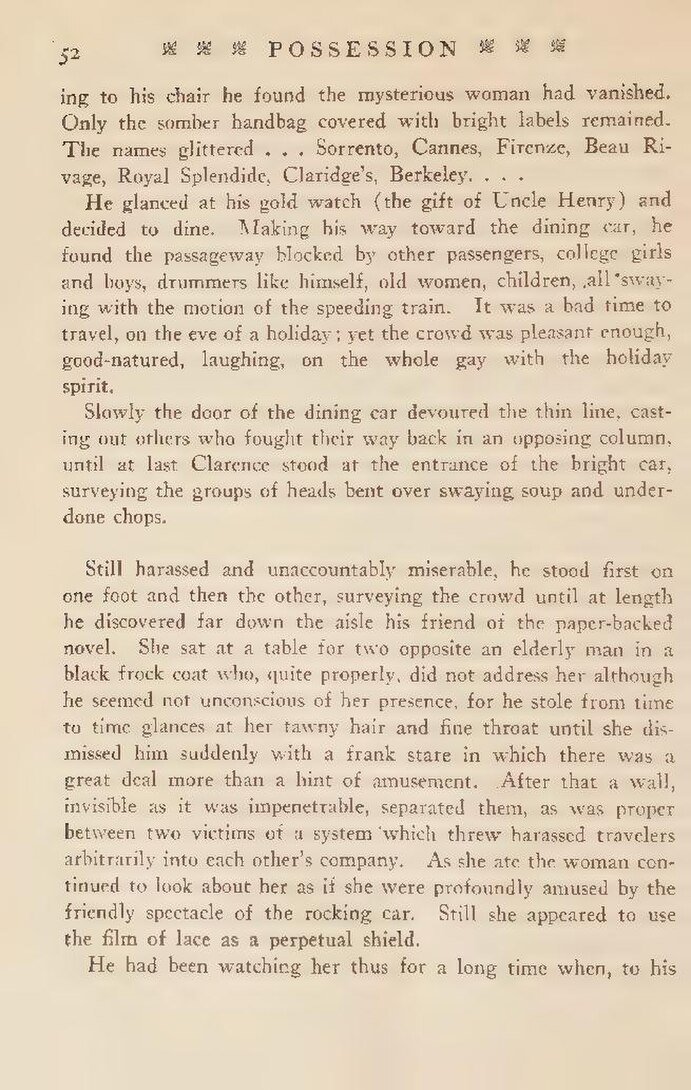ing to his chair he found the mysterious woman had vanished. Only the somber handbag covered with bright labels remained. The names glittered . . . Sorrento, Cannes, Firenze, Beau Rivage, Royal Splendide, Claridge's, Berkeley. . . .
He glanced at his gold watch (the gift of Uncle Henry) and decided to dine. Making his way toward the dining car, he found the passageway blocked by other passengers, college girls and boys, drummers like himself, old women, children, all swaying with the motion of the speeding train. It was a bad time to travel, on the eve of a holiday; yet the crowd was pleasant enough, good-natured, laughing, on the whole gay with the holiday spirit.
Slowly the door of the dining car devoured the thin line, casting out others who fought their way back in an opposing column, until at last Clarence stood at the entrance of the bright car, surveying the groups of heads bent over swaying soup and underdone chops.
Still harassed and unaccountably miserable, he stood first on one foot and then the other, surveying the crowd until at length he discovered far down the aisle his friend of the paper-backed novel. She sat at a table for two opposite an elderly man in a black frock coat who, quite properly, did not address her although he seemed not unconscious of her presence, for he stole from time to time glances at her tawny hair and fine throat until she dismissed him suddenly with a frank stare in which there was a great deal more than a hint of amusement. After that a wall, invisible as it was impenetrable, separated them, as was proper between two victims of a system which threw harassed travelers arbitrarily into each other's company. As she ate the woman continued to look about her as if she were profoundly amused by the friendly spectacle of the rocking car. Still she appeared to use the film of lace as a perpetual shield.
He had been watching her thus for a long time when, to his
